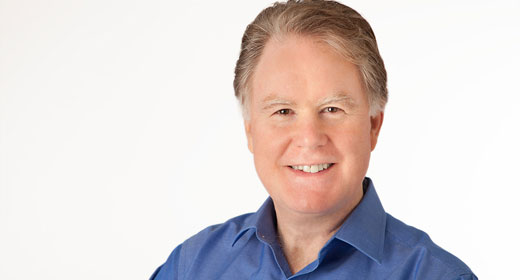by Swami Krishnananda: Things which are ordinarily considered as impossible are said to become possible through the power of prayer…

The ability of prayer to work miracles is regarded as preeminent in all forms of religious approach. The importance that has been given to this aspect of religious exercise in the scriptures as well as by the great masters of yore have not been properly recognised and appreciated by the workaday mind of the common man, due to different types of distraction and problems.
The power of prayer is incalculable, and its efficacy has been sung in glorious terms even by poets, what to speak of yogis, masters and prophets. But how does prayer work? Man is a doubting creature, and a little time that the power of prayer takes to work may upset the faith of even the prayerful. There is an inveterate habit of the human mind to expect immediate results. It is not that immediate results cannot follow; they also are possible. Immediate consequences can be the result, no doubt, but of intense effort. The quantum and the quality of the effort that is at the back of the performer of this exercise decides the time that it takes to manifest itself in action, call it the fructification thereof, of the working of a miracle or the appearance of a wonder.
But what is prayer? Everyone prays. We hear that in all temples, in holy places, in churches and mosques, in sacred places of pilgrimage, prayers are offered. Sacred formulae are chanted, mantras are recited, gospels are read, and we bow our heads before a holy of holies; it may be in the form of a sacred text or in the vicinity of a place of worship. This much is visible everywhere in ardent religious circles. We do offer prayer.
But prayer is not a dead force. It is a living operation, and hence, any attention that is paid in the direction of the offering of prayers dissociated from the consciousness of prayer may deleteriously tell upon it, and its efficacy to that extent would be diminished. Prayer is the movement of a living, vitalising, seeing eye. It is not a blind, automatic/automaton energy that moves like a bulldozer lumbering on the street. Not so is the way of prayer. Prayer has eyes to see.
I met a person sometime back and asked him what his occupation is, what he does. He said, “I do prayer. My work is only prayer, Swamiji.”
I said, “Do you offer prayer the whole day?”
“I do that to the best of my ability,” he replied.
“What for are you praying?” I asked him.
“I pray for bringing about a healing touch in that area of the world where there is a rift of the human psyche. Where there is social tension or political agitation, I direct my prayer to that area. I am satisfied that my prayers have good results,” he replied.
Then I asked him a probing question. “How does your prayer, which is evidently a thought which is in your mind, an idea within your head, how does this idea, this thought, this feeling in your mind which is within your body come in contact with that area where you want it to take effect?”
He was an interesting person. He gave me an apt answer to this query, which is exactly the meaning and the methodology of the operation of prayer.
“I do not do anything. What actually does the work is something else. But what is my function? What do I do, if what actually does the miracle is something else? I operate my mind in such a way that it establishes a purposive contact with another thing altogether which is pervading in this world, and it receives my message. I do not contact that area in which I wish to effect some particular result. I may not even know where the trouble is brewing. I cannot know what is happening all over the world. Yet, my prayers will have an effect, notwithstanding the fact that I am not personally conscious of the troubles that people may be undergoing the world over in different corners of the earth. Actually, it is not necessary for me to know it.”
Then I asked him, “How does a particular area receive the benediction of your prayer if you are not even aware that such an area exists, or that such an area is in need of any succour?”
His answer was very illuminating. “That which I am trying in my whole humble capacity to contact for the purpose of bringing about this effect is not a blind energy. It is all-intelligence and can understand what I am telling it. I am saying, ‘My request to you, my dear friend, is that you kindly bring a healing touch and act as a cementing force in that particular location of the world, in that mind of that person as may be necessary to cause psychological solidarity, social peace, political harmony, goodwill and amity, health, wealth and prosperity.’ These words of mine which are, after all, what I can speak in my own humble capacity, are received. They are received because That which receives it has intelligence. Like a parent, like a father or a mother, a well-wishing guardian, it receives my words. I am not in a position to transform the world. Yet, a miracle can be worked by my humble request to That which is capable of transforming anything in the world.”
Now, these ideas that occur to the mind just now in the wake of such a conversation bring to my memory the psychology, or we may call it the philosophy, behind this wondrous mechanism in religious practice called the offering of prayer. Prayer is not just the chanting of a formula, though it can take the form of such a chant. Prayer is not the recitation of a passage from a scripture, though it can manifest itself in that form also. In fact, prayer is not anything that you are doing, though what you do can become a medium of the expression of that which is called real prayer.
But what is prayer, if all that I do is only a medium for the expression of it and it happens to be a little different from my doings or my performances? My prayer is my communication with that which requires my assistance. But ‘my communication’ has to be understood in its proper spirit. What is meant by ‘my communication’? Who is communicating?
We are, as human beings, constituted of various levels of reality, varieties of expression of truth. These things are well known to everyone here, seated in this satsanga and listening to various lectures, upadesas. The human personality is not an indivisible, compact substance. It is a composite structure of different layers of psychophysical substance – or action, to put it more properly. We are not a substance so much as a kind of action or an activity, a movement, a performance and a tendency.
Psychologists have discovered that the human personality, which looks like a solid something before a camera, is actually a concentrated pinpointing, a conglomeration of different facets of energy or force which impinge on a particular point in space and time, attended with an intense form of self-consciousness. This may be a psycho-philosophical definition of the human individual. It does not appear we are, therefore, an island cut off by the sea from all sides. “No man is an island” is an old saying. Man is not an island, because he is not cut off by a sea of different characters. The human personality is a microcosmic affirmative centre of energies which fly to that particular point in a given pattern or formation of structure due to the intentions of that particular centre of consciousness, which intentions are generally called the desires of consciousness, the patterns of the summoning by consciousness. These patterns are the determining factors behind the kind of body that one puts on, the type of person that one is, and the manner in which one lives in the world.
Jati, ayu and bhoga, says Patanjali, the great author of the Yoga Sutras, are the cumulative effect of a concentrated self-affirmation of consciousness in a particular form. Jati, ayu and bhoga are the three words that are used in this sutra of Patanjali. The species into which we are born is the jati. We are born into the human species, not as a reptile or an animal of the jungle. Why have we been born as a human being, and not as anything else? That has a reason. The length of time for which we will be able to live in this world, the span of our life, is ayu. The third is bhoga, or the experiences that we have to undergo in this world, pleasant or otherwise. These three things – namely, the species into which we will incarnate in this birth, the duration for which we will be able to live in this world, and the kind of experiences that we have to pass through here – are all decided by a particular operation of the consciousness, and these operations which constitute the formation of individuality again operate in different degrees and layers of action.
It is a little difficult to understand the human individual. The seed of our affirmation as an individual or a human personality is the deepest layer of our phenomenal existence. These days, psychologists and psychoanalysts are likely to consider this deepest layer of the human personality as what is called the unconscious level. This is not a wholly correct definition, though there is some truth in characterising this deep layer in this manner.
The psychologies of the West have principally categorised the human psychic structure into a threefold layer, namely the unconscious, the preconscious or the subconscious, and the conscious. But Indian psychology goes a little deeper. Though it accepts the possibility of the categorisation of the human psyche in this manner, there is more to be said about the human individual. There is something deeper than even the unconscious in man. It does not mean that we are basically unconscious. Rather, the opposite of it is our longing. We like to know; we do not like to be ignorant.
There is behind the dark cloud of the conscious psyche – which we experience in deep sleep, for instance – a lamp which shines forever, undimmed by the winds of the performances of the psyche, and unconcerned, as it were, with what happens in the outer layers of the human personality. Windless is that deepest location of our being. That flame is an eternal illumination within us, and this inscrutable, subliminal route of our existence is the cause of our many longings in this world. It is finitely located, as it were, like the finitude that the light of the sun may assume when it passes through a little slit of a dark cloud. Thick layers of cloud sometimes range over the sky in the monsoon, and it appears as if the sun is not there at all. It is midnight, as it were, even in mid-day. Yet, occasionally a powerful scintillating ray sometimes beams forth through a little aperture in the midst of these dark clouds. Finite it looks because it is a single ray, yet this beaming ray is really not finite. It is an all-consuming illuminating radiance filling all space, but it looks like a little helpless ray that is trying to seek an avenue of manifestation through the little hole in the dark cloud.
This analogy may explain our position as human individuals. This little radiance within us is really not as finite as it appears. It is a large spaceless radiance which is apparently caught up in the midst of the dark unconscious cloud of our unknowing, and through this little slit called the intellect it manifests itself as rationality, understanding in the empirical sense. There are also the outermost layers, which are external to this beaming light. In Indian psychological language, they are called the koshas or the vestures of personality. External to this radiance is the anandamaya kosha or the bliss sheath, the kind of bliss of ignorance that one experiences in the state of sleep. Then there is the intellectual sheath, the mental sheath, the vital sheath, and finally, the physical sheath.
Who does prayer, actually? Our point is that prayer has a very effective method of operating in this world in a very helpful and wholesome manner. Does the body offer prayer? The layer of personality of the human being, which is the physical level, offers the prayer. You know very well that the physical body is not the medium of the offering of the prayer. The gesticulations during our worships and the physical associations in any kind of religious performance may make it appear that the body also participates, yet the body, the physical sheath of ours, is basically unconscious. It is not awareness. Therefore, we cannot say that our prayers arise from the physical sheath only, as physical gestures are not necessarily prayer.
Then we go to our deeper layers, the intellect, the mind, the vitality. None of these can stand by themselves. They are associated factors, no doubt, but by themselves they are incapable of producing the required results. All these layers, these vestures, do indeed take part in some manner or other in the performance of the religious exercise. It may be a prayer, it may be a meditation, but the performances of these vestures of the human personality become significant and meaningful only when they are enlivened and become self-conscious.
Our body is self-conscious at present. It appears at least that this body knows that it is seated here, and we refer to ourselves as this body only, when we speak in such a manner as, for instance, “I am coming, I am sitting here, I shall go for a walk,” and so on. In statements of this kind, we refer to ourselves as the physical body, and it appears that due to some reason the physical body has assumed self-consciousness. It says, “I am.” The body also can say, “I am,” and just now it is saying that because it has been charged with a kind of reality which is at once self-aware. The body is, and it is also aware. The body knows that it exists, and it also knows that it is aware of its existence. Existence and consciousness are both associated with the body now in this waking condition, just at this moment when I am speaking and you are hearing. But we are not always in this condition.
In the dream state, the body does not affirm itself in this way. Only the mind or the psyche operates, and the intellect partially acts. In the deep sleep state, none of these functions seem to be active. We do exist even in deep sleep, but we exist not as the body, not as the mind, not as even the prana, of which we are not aware, not as the intellect, not as the reason, which also do not perform the usual functions. Nevertheless, we do exist. This is a mystery in us.
While our outer definitions seem to be intelligible in some way, this deeper mystery in us, the manner in which we seem to exist, seems to be alive even in the state of deep sleep, and cannot but be designated as a mystery indeed. Not as the body, not as the mind, not as the reason, not as a man, not as a woman, not rich, not poor, not tall, not short, not black, not white. In none of these ways do we exist in deep sleep. Nevertheless, we do exist. In what manner do we exist? We do not exist as anything that can be associated with this world. No empirical characterisation can have any relationship with what we are in the state of deep sleep. What else are we?
Philosophers have racked their heads to define what this condition could be, but nobody can give a direct and first-hand information of this experience because whatever we know of this condition is only in the form of a remembrance, a memory. We cannot know anything in the state of sleep, but we can know that we did sleep. Why is this phenomenon? How is it possible that we can remember a thing of which we had no experience? These are contradictions, are they not? How can one remember a thing of which one had no experience, and we had no conscious experience in the state of deep sleep. If we had a conscious experience, naturally we would know, “I am sleeping just now.”
Nobody knows that he actually sleeps, because sleep is an unconscious existence. But how do you know that you did exist unconsciously? Unconscious existence cannot make a statement. The conscious something is remembering an unconscious condition. Here again is a contradiction, logically speaking. A conscious memory cannot arise from unconscious precedents. An unconscious cause cannot produce a conscious effect. They are dissimilarities. The remembrance of having slept is a conscious operation. We consciously know that we did sleep. If this effect we call a memory of having slept is a conscious condition, how could we deduce it from an unconscious cause which we say is the state of deep sleep? We are really a contradiction and a miracle.
However, the inference that we can draw from this predicament is very interesting. The deduction has to be logically worked out. A conscious effect has followed, but a conscious effect cannot follow from an unconscious cause. There must have been an element of consciousness in the cause which is now effectuating itself as this memory of having slept. What do we conclude then? We conclude that we are not really unconscious in the state of sleep. If that were the case, we would be unconscious even after waking because from that way we come, we wake up from sleep. So when we wake up from unconsciousness, we cannot become conscious. We cannot extract milk out of granite. How could we rise into a conscious condition in waking if we rise from an unconscious state? Therefore, our analogy, our inference is that there is some mystery which eludes the grasp of our logical intellect, and we are ourselves a mystery. So is everyone in the world. It cannot be that we are unconscious basically in the state of sleep if we are conscious now in the waking condition. Else, we would be unconscious even in waking. There would be pitch darkness everywhere, and nobody would know anything if that were the essential nature of man. Therefore, consciousness must be our real nature even in sleep – but consciousness of what?
We are generally accustomed to associate consciousness with the content thereof, but what was the content of consciousness in sleep, if at all we agree that it is only that? What was it conscious of? It was conscious of nothing. There was no ‘of’ to consciousness. Consciousness is. And that is-ness of consciousness, its existence of its being, is itself its value. It was illumination that was, and is, and nothing more can be said about it.
We say, “I am immensely happy because I slept well.” Why should we be happy when we possessed nothing, we ate nothing, we enjoyed nothing, and we contacted nobody? The happiness of sleep is incomparable. Not all the wealth in the world can equal the joy of a good sleep. Everyone knows that, but from where does this happiness come?
Happiness generally is associated with a delightful object – some wealth, some property, some contact. Nothing was there in sleep, yet I am happier there than I could be in any other blissful happy condition in the empirical world. Who gave this joy? This happiness of sleep is incomparable because external to that consciousness, nothing can be. What is it then? What am I, really speaking? I am. I was when I was asleep. There is existence associated with my consciousness. Is there a limit to consciousness? Consciousness itself is aware of its own limitation.
Take a high-frequency wave, for example. There is something called ether. Songs travel long distances in the same tone, the same undulation as is necessary for this purpose. But we are now operating in the political, social, economic and physical level mostly, and therefore, the high-frequency existences such as angels in heaven or God in the supremacy of existence cannot be contacted by these lower-level thoughts. We generally think like little babies; therefore, that lower-level undulation cannot reach the intensified forms of existence in the deeper realms of being.
Hence, in prayer we have to dive deep into ourselves, as we ourselves are the broadcasting station. We make a little sound. We say something to God such as, “Oh God, please do this.” But this cannot reach Him unless we have something in us by means of which we are able to contact that high-frequency existence called the Absolute. And that mechanism is inside us. There are the lower levels, layers, deeper than the subconscious, deeper than even the unconscious, we may say, and there is a super-conscious level in us. As is usually said, in prayer the soul speaks.
We have to understand what it actually is for the soul to speak. The soul weeps, the soul is exalted, the soul cries, the soul is happy. These are expressions we sometimes hear of, but we cannot easily understand what it means. How does the soul weep, and how does it feel happy? The soul is the totality of our being, the wholeness of what we are, the complete exultation of every cell of our psychophysical existence which rises into total action in prayer, and that can contact the cosmic ether, which is the Cosmic Mind. In the Vedantic philosophy it is called Hiranyagarbha, Ishvara Shakti and so on. That is the high-frequency medium through which we can contact anything, even the angels. If we say something, they will know it.
Therefore, prayer is not idle prattle. It is a wondrous religious exercise, and there is nothing finally impossible if prayer can be properly conducted and roused into action from that particular level of our being from which alone it has to arise.
As it was mentioned, your wish is your action, but when I say “your wish”, you must underline that word ‘your’. What is meant by ‘your’? Is it the body, the vital organs, the intellect? Which levels are you referring to when you say “your action”? In prayer, it is the action of that particular layer which you are trying to employ as a means of communication to the particular effectuation or the wish.
Telepathic communications are part and parcel of this kind of mechanism operating in us. Deep thinking by an inward communion of the psyche with the form or the location or the pattern of existence of that particular area or person can change your whole circumstance. Enemies can become friends, and friends can become one with you. Actually, the world is the kingdom of friends.









































